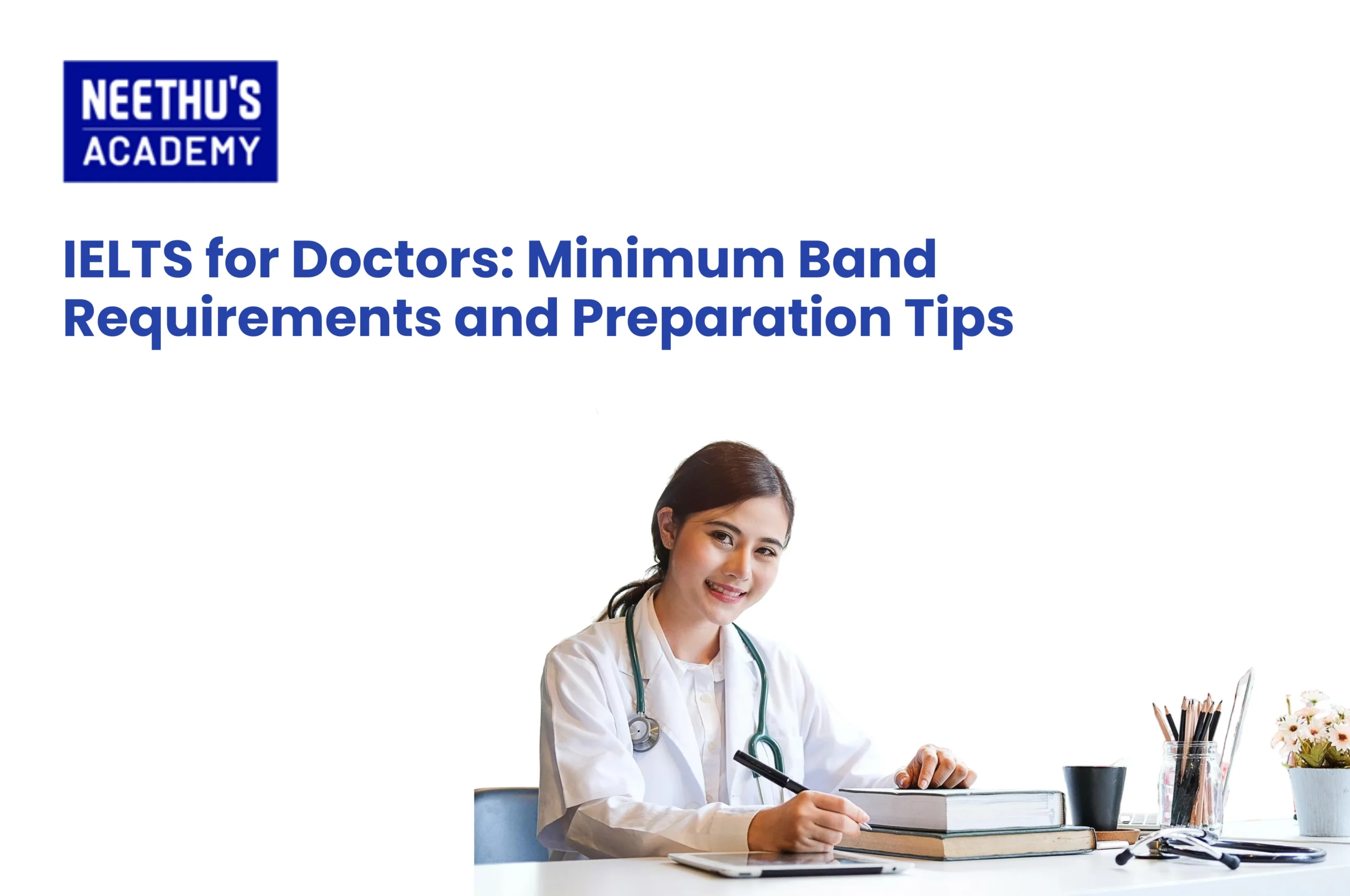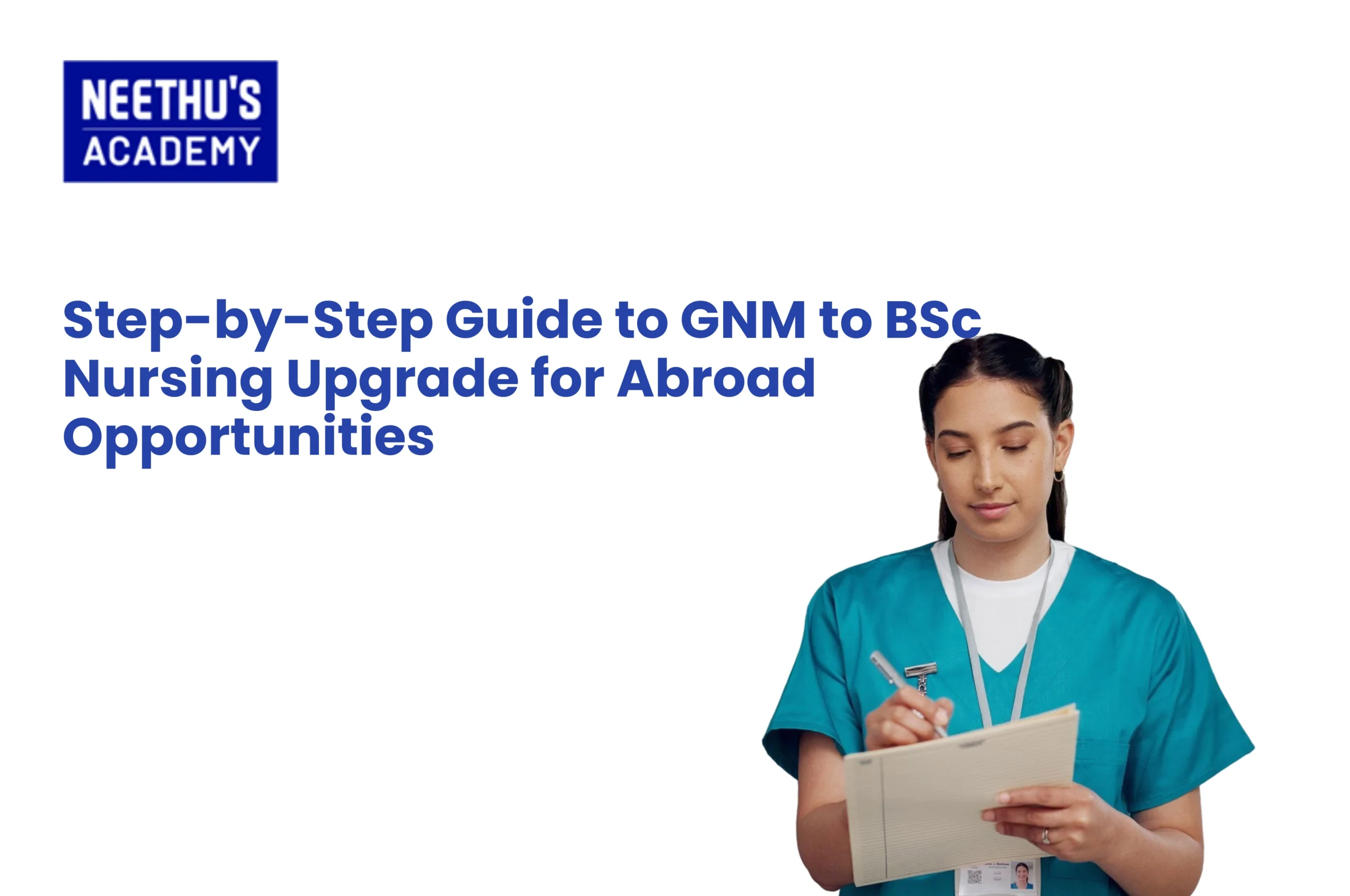Proving one's ability in the English language is a prerequisite for employment, education, or immigration to English-speaking countries in the globalized world.…

IELTS for Doctors: Minimum Band Requirements and Preparation Tips
For overseas doctors intended to practice in the UK, IELTS for doctors is one of the most important GMC registration requirements. It ensures that medical practitioners are able to communicate successfully with patients, colleagues, and other healthcare professionals. Efficient language ability is crucial in ensuring patient safety, delivering proper treatment, and establishing trust in healthcare provision. Thus, complying with the IELTS GMC requirements becomes a crucial step for physicians intending to register with the GMC or sit for the PLAB (Professional and Linguistic Assessments Board) test.
Band Requirements for GMC and PLAB
The UK doctor IELTS band is more than the overall academic or immigration score due to the severity of medical communication. To register with the GMC or take the PLAB exam, doctors need to score an overall band score of 7.5, at least 7.0 in each of four sections — Listening, Reading, Writing, and Speaking.
This score needs to be obtained in one sitting, and scores from two separate attempts need not be combined. The requirement allows doctors to possess adequate language skills to understand intricate medical paperwork, interact with patients from various cultures, and work collaboratively with multidisciplinary teams.
In plain language, if you wish to practice medicine in the UK, target a minimum of 7.0 in each skill and an overall 7.5 on one attempt.
Challenges Usually faced by Doctors
Even top-notch physicians may struggle with the IELTS, particularly due to time constraints and the use of formal academic language. Typical challenges are:
- Time pressure: Finishing reading and writing sections within tight timeframes.
- Complex vocabulary: Comprehending idiomatic expressions and subtle word meanings.
- Writing coherence: Writing essays logically and in a professional tone.
- Speaking fluency: Conversing smoothly without focusing too much on grammar.
- Work-life balance: Balancing study preparation time with hectic hospital timetables.
Knowledge of these pitfalls enables doctors to devise an effective study plan and steer clear of usual mistakes.
Study Plan for Busy Professionals
Busy doctors need efficient use of time for study preparation. A structured plan will assist you in achieving the GMC-specified score despite a short study schedule.
- Begin with a diagnostic test:
Take a complete practice IELTS test to determine your weak spots and establish definite improvement objectives for each skill.
- Develop a realistic 6–8 week study plan:
- During the first two weeks, concentrate on listening comprehension and reading speed.
- During weeks three and four, practice writing task formats and vocabulary enrichment.
- During weeks five and six, practice speaking mock tests and pronunciation.
In the last few weeks, do full-length mock tests under timed conditions to get a real test feel.
- Study smart:
Take short 30-minute study breaks during work time or post-shift. Listen to IELTS podcasts, do short writing practice, or read clinical articles to continuously improve.
- Do mock tests regularly:
Do 3–4 full tests before the actual test to develop endurance and comfort with the pattern. Go over errors thoroughly to monitor progress.
- Think about professional coaching:
If self-study seems daunting, take an IELTS for doctors course aimed at healthcare communication, letter writing, and building fluency through medical subjects.
Recommended Study Materials
Doctors must use reputable and focused materials that reflect actual test standards.
For Listening and Reading:
- Cambridge IELTS Practice Books (10–18) for realistic test experience.
- BBC Health and Medicine Podcasts for listening comprehension improvement.
- IELTS Liz and IELTS Mentor for tips and practice questions.
For Writing:
- IELTS Simon for high-scoring essay samples and structure guidance.
- Official IELTS band descriptors to understand evaluation criteria.
- Practice writing on healthcare or ethical issues to develop a formal tone.
For Speaking:
- Partner with a colleague or tutor to simulate interviews.
- Record your answers to analyze pronunciation and fluency.
- Make use of the IELTS Speaking Assistant app for independent practice and timed practice simulations.
Comprehensive Online Platforms:
- British Council Road to IELTS
- Magoosh IELTS Prep
- IELTS Online by IDP
Using a combination of the above resources guarantees rounded-up preparation in all sections.
Role of Academic Vocabulary and Fluency
To fulfill the IELTS GMC requirements, physicians must exceed normal English and become proficient in academic and professional vocabulary. This means applying precise medical terminology, steering clear of repetition, and being formal and clear in tone.
Rather than stating “I believe the patient was severely ill,” try “The patient exhibited acute symptoms with a possible systemic infection.” This is precise and professional.
In the Speaking test, confidence and fluency are extremely important. Practice describing difficult medical subjects in plain English, read journal articles out loud and summarize them, and discuss topics to sound natural and logical.
Fluency can be gained only through regular practice, but the reward is tremendous — it not just increases your IELTS score but also assists in successful real-life communication with medical staff and patients.
Conclusion
Passing the IELTS for doctors test is a significant step towards practising medicine in the UK. Doctors can confidently target an overall band score of 7.5 or more with the proper strategy, consistent preparation, and emphasis on accuracy and fluency. Combining professional responsibilities and IELTS preparation may be demanding, but regular practice and judicious use of resources render it completely possible. Compliance with IELTS GMC requirements brings GMC registration, PLAB eligibility, and a successful international medical career within reach.
Frequently Asked Questions
GMC demands an overall band score of 7.5 with no less than 7.0 in each component in one sitting.
No, the conventional IELTS Academic test is acceptable for GMC and PLAB registration.
Yes, GMC recognizes OET Medicine with a minimum of B grade in all sub-tests.
IELTS scores are valid for two years only for GMC application.
Related Blogs
- All Posts
- IELTS
It is absolutely possible to increase your score in IELTS speaking within one month if you are motivated, really well prepared, and…
The reading module of the IELTS exam tests your comprehension skills on a variety of question types in a short period. Among…
Course Enquiry
Latest Posts
- All Posts
- canada
- CBT
- DHA
- French
- GENERAL
- German
- Haad
- IELTS
- IQN NEW ZEALAND
- MOH
- NCLEX-RN
- NHRA
- OET
- OSCE
- Pearson Vue
- PROMETRIC
- PTE
- TOEFL
- Back
- NCLEX - NGN
- Back
- OET FOR PHYSIOTHERAPIST
- OET FOR PHARMACIST
- OET FOR DOCTORS



